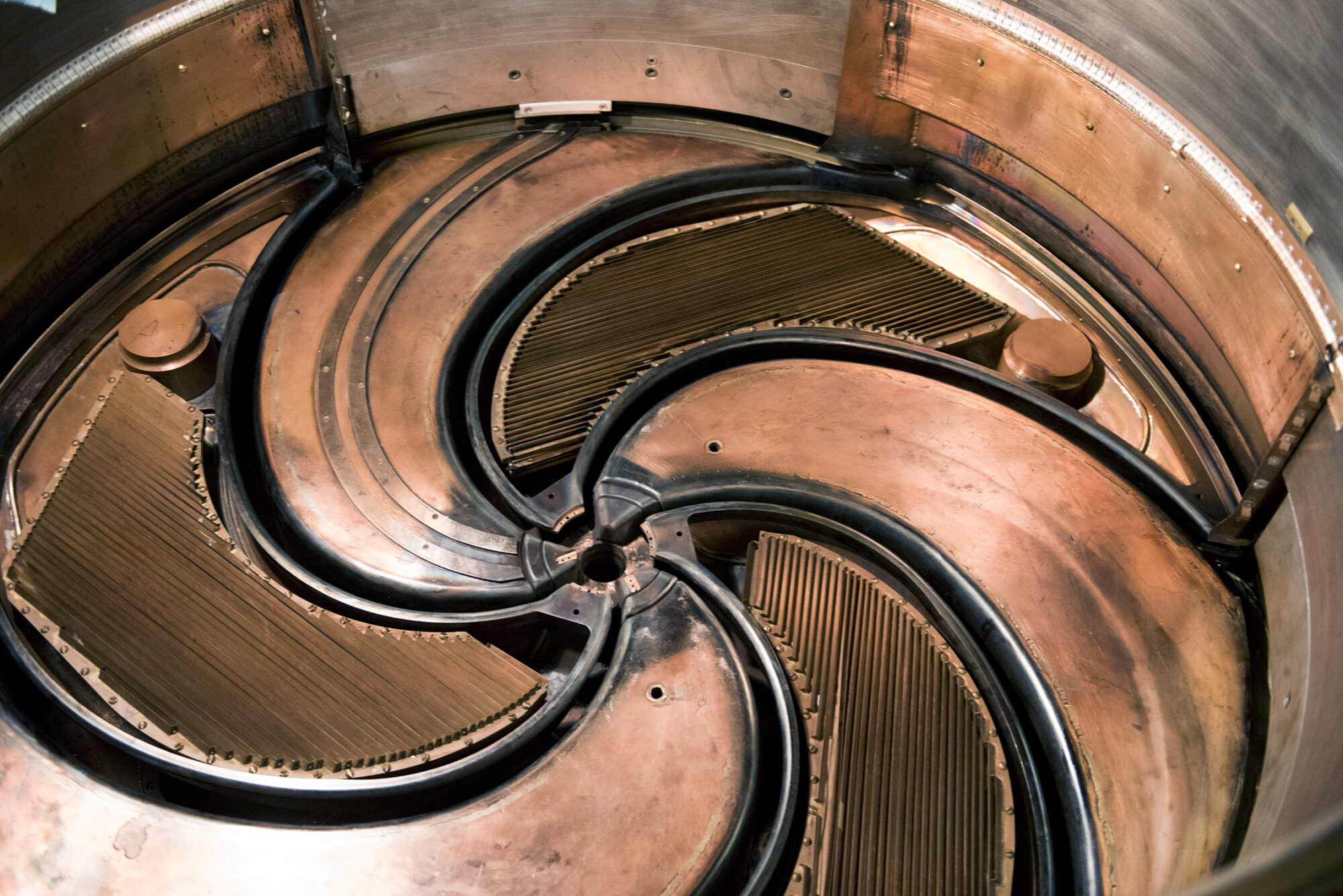
Through the years, institute facilities have been used for cancer therapy, radiation dosimetry, studies of plant physiology, precise analytical determinations, development of mass-spectrometric techniques, studies of “high T” superconductors, evaluation of nuclear waste transmutation techniques and simulation of cosmic-radiation-induced effects on microelectronic circuits. The resulting breakthroughs have been myriad, including many products such as OnStar, for which the Cyclotron Institute did all the testing back in the 1990s, that now are household names.
While the discovery science program has been ongoing for more than 55 years, the institute took on a new distinct competency in 1995 — testing electronics for the effects of radiation. In the course of the past three decades, this program has grown to encompass more than 4,000 hours of dedicated beam time per year, establishing Texas A&M as the premier location in not only the U.S. but also the world at which to do testing of heavy ion interactions with electronics, an important safeguard for both commercial and military satellites as well as space missions. Each year, more than 500 users come to the institute for these critical studies, perhaps none more memorable than SpaceX and the pivotal testing for nearly 100 electronic components of its Crew Dragon capsule that made history in 2020 as the first crewed spacecraft to lift off from American soil since 2011.
Additionally, in the last few years, the institute has initiated a program to produce Astatine-211, an alpha-emitting nucleus that is a promising isotope for targeted alpha therapy for cancer treatment.
The state’s and nation’s original investment back in 1964 was in support of discovery science — a bold move that Yennello says has paid off in spades in terms of both basic and applied research. The decades since have borne witness to many unforeseen benefits, from medical isotopes to chip testing. In 2022, the
U.S. Department of Defense awarded an $11 million grant to the Cyclotron Institute for facility improvements to enhance the institute’s capacity in the latter category — improvements that Yennello says will benefit both the applied and fundamental work underway within the institute.
“The Cyclotron Institute represents the best of government, academia, industry and philanthropy at work for the greater good,” Yennello said. “It is this synergy of fundamental science, applications and workforce development through education that is really powerful across all sectors. We are honored and proud to celebrate what we see as a collective success for our state, nation and world that we’re fortunate to have right here in our backyard.”
This
story source was originally published by
Texas A&M Arts & Sciences.
